MCQ ON Phases in Life Cycle for NEET |MCQ ON —NEET Biology class 12th |MCQ Questions for class 12 Biology chapter 1, phases in Life Cycle with answer | Check the below NCERT MCQ question for class 12 Biology chapter 1 based on phases in Life Cycle with answers.
MCQ Questions for class 12 Biology with Answers were prepared based on the latest pattern. We have provided class 12 Biology MCQs questions on phases in Life Cycle with answers to help students understand the concept very well.
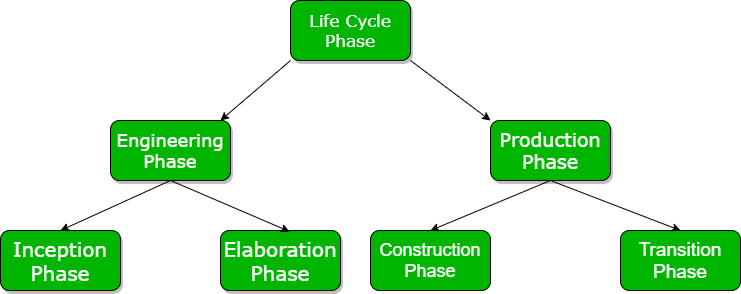
Phases in Life Cycle for NEET
MCQ on is useful for NEET/ CSIR/ UGC/ CBSE/ ICSE /AIIMS EXAM/ AFMC EXAM/ JAC exam/ STATE LEVEL MEDICAL EXAM
Introduction:-
Phases in Life Cycle:- A life cycle refers to the series of stages and events that an organism goes through from birth or germination to reproduction and eventually death. Life cycles vary significantly among different organisms, but they often involve common phases or stages. Here are the typical phases of a life cycle.
1. Birth or Germination:- This is the starting point of an organism’s life cycle. It can involve the hatching of an egg, the sprouting of a seed, or the birth of a live organism from a parent.
2. Growth and Development:- After birth or germination, organisms go through a period of growth and development. They acquire new cells and tissues, develop organs, and increase in size and complexity. This phase often involves various stages, such as infancy, childhood, adolescence, and adulthood.
3. Reproduction:- Reproduction is a crucial phase in the life cycle where organisms produce offspring. In sexual reproduction, it involves the formation of gametes (sperm and egg cells), fertilization, and the development of a new generation. In asexual reproduction, it can include processes like budding, fission, or cloning.
4. Maturity and Adulthood:- Once organisms reach maturity, they are capable of reproducing. This phase is often characterized by the peak of physical development and the ability to contribute to the survival of the species.
5. Aging and Senescence:- As organisms age, they undergo physical and physiological changes. This phase can include the gradual decline of reproductive abilities, the development of age-related diseases, and a decrease in overall vitality.
6. Reproductive Senescence:- In many species, there comes a point when reproductive abilities decline significantly or cease altogether. This phase marks the end of an individual’s contribution to the gene pool of the species.
7. Death:- The final phase of the life cycle is death, which is the cessation of all life processes. Death can occur due to various factors, such as old age, disease, predation, or environmental conditions.
8. Recycling of Materials:- After death, organic matter is typically decomposed by scavengers, fungi, bacteria, or other organisms. This decomposition process recycles nutrients back into the environment, making them available for future generations of organisms.
It’s important to note that the specific phases and their durations can vary greatly depending on the species and the environmental conditions in which an organism lives. Additionally, some organisms, like perennial plants, may have life cycles that repeat over multiple years, while others, like annual plants, complete their life cycle in a single year.
MCQ ON phases in Life Cycle for NEET
Here are 15 multiple-choice questions (MCQs) related to the phases of a life cycle:-
1. What is the starting point of an organism’s life cycle?
a) Growth
b) Birth or germination
c) Reproduction
d) Maturity
Answer: b) Birth or germination.
2. During which phase of the life cycle do organisms acquire new cells and tissues, develop organs, and increase in size?
a) Growth and development
b) Reproduction
c) Maturity and adulthood
d) Aging and senescence
Answer: a) Growth and development.
3. Which phase of the life cycle is characterized by the ability to reproduce and contribute to the survival of the species?
a) Growth and development
b) Maturity and adulthood
c) Aging and senescence
d) Death
Answer: b) Maturity and adulthood.
4. What phase in the life cycle marks the end of an individual’s contribution to the gene pool of the species?
a) Growth and development
b) Reproduction
c) Aging and senescence
d) Death
Answer: c) Aging and senescence.
5. What is the final phase of the life cycle?
a) Birth or germination
b) Growth and development
c) Reproduction
d) Death
Answer: d) Death.
6. Which phase involves the production of offspring through processes like fertilization and the development of a new generation?
a) Growth and development
b) Reproduction
c) Maturity and adulthood
d) Aging and senescence
Answer: b) Reproduction.
7. What is the term for the gradual decline of reproductive abilities and the development of age-related changes in an organism?
a) Growth and development
b) Reproduction
c) Maturity and adulthood
d) Aging and senescence
Answer: d) Aging and senescence.
8. When do organisms typically reach maturity, becoming capable of reproduction?
a) At birth or germination
b) During growth and development
c) During aging and senescence
d) At death
Answer: c) During aging and senescence.
9. In many species, what phase marks the end of an individual’s contribution to the gene pool of the species?
a) Growth and development
b) Reproduction
c) Aging and senescence
d) Death
Answer: b) Reproduction.
10. What phase in the life cycle involves the cessation of all life processes?
a) Growth and development
b) Reproduction
c) Maturity and adulthood
d) Death
Answer: d) Death.
11. What happens to organic matter after death in many organisms, contributing to nutrient recycling?
a) It remains intact indefinitely.
b) It is preserved as fossils.
c) It is decomposed by scavengers and microorganisms.
d) It is transported to another location.
Answer: c) It is decomposed by scavengers and microorganisms.
12. Which phase of the life cycle often involves physical and physiological changes associated with aging?
a) Growth and development
b) Reproduction
c) Maturity and adulthood
d) Aging and senescence
Answer: d) Aging and senescence.
13. In which phase of the life cycle do organisms typically contribute to the gene pool of the species by producing offspring?
a) Growth and development
b) Maturity and adulthood
c) Aging and senescence
d) Death
Answer: b) Maturity and adulthood.
14. Which phase of the life cycle is characterized by the acquisition of new cells and tissues and the development of organs?
a) Growth and development
b) Reproduction
c) Maturity and adulthood
d) Aging and senescence
Answer: a) Growth and development.
15. What is the term for the phase in the life cycle when offspring are born or hatched?
a) Fertilization
b) Budding
c) Gestation
d) Parturition
Answer: d) Parturition.
Conclusion:-
MCQ ON phases in Life Cycle for NEET:- What is the term for the phase in the life cycle when offspring are born or hatched? a) Fertilization, b) Budding, c) Gestation, d) Parturition, Answer: d) Parturition.

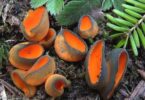
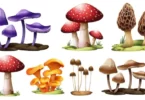
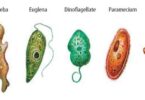
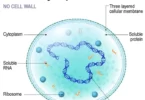
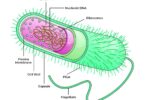
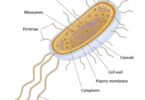
Leave a Comment